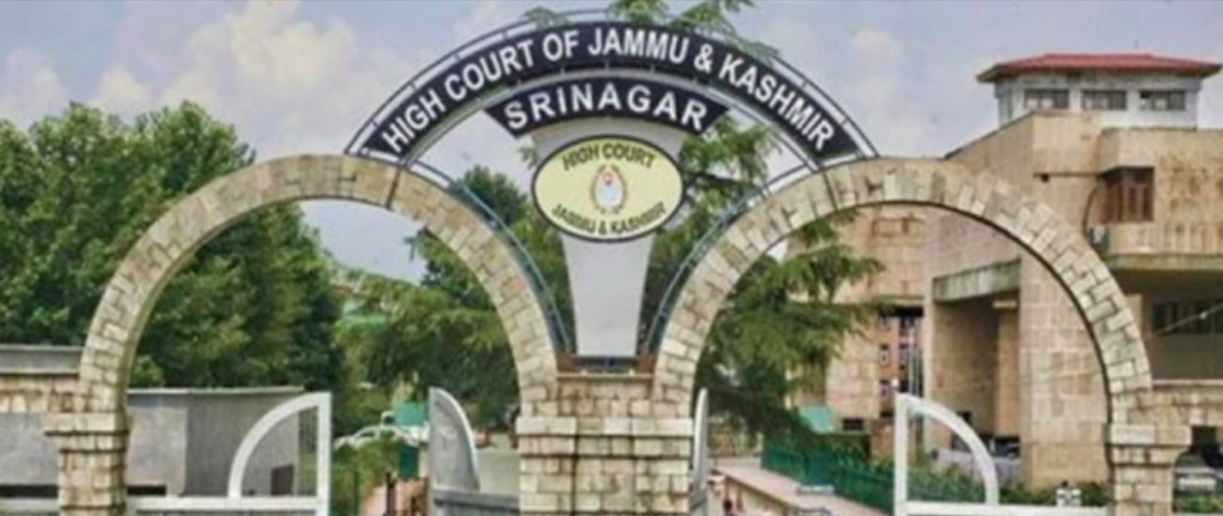If offence committed by company was without a person's knowledge, he shall not be liable to any punishment: Jammu and Kashmir High Court

The High Court of Jammu and Kashmir recently observed that if an offence is committed by a company, and it was committed without a person's knowledge who at the time of the incident was in charge of and was responsible to the company for the conduct of the business, he shall not be liable to any punishment.
The bench of Justice Vinod Chatterji Koul observed:
“Sub section (1) to Section 22C provides that where an offence is committed by a company, every person who at the time the offence was committed was in-charge of and was responsible to the company for the conduct of the business, as well as the company itself shall be deemed to be guilty of the offence. By necessary implication, it follows that a person who do not bear out the requirements is not vicariously liable under Section 22C(1) of the Act. The proviso thereof makes it clear that a person shall not be liable to any punishment if he proves that the offence was committed without his knowledge or that he exercised all due diligence to prevent commission of such offence.”
In the present petition, the petitioners was seeking quashment of Criminal Complaint filed by the respondent Labour Enforcement Officer (Central) against them under the provisions of Section 24 of the Contract Labour (Regulation and Abolition) Act, 1970 and proceedings initiated thereon by the Court of Special Mobile Magistrate/Passenger Tax Shops and Establishment Act, Jammu.
The petitioner No.2-Naresh Chandra Dash was the AGM, HR Compliance and IR of M/s Tata Consultancy Service Ltd. The Company claimed to have been engaged by the Ministry of External Affairs at Passport Seva Kendra Project, Jammu, for the purposes of providing citizen services in processing passport-related documentation and allied facilities under the Regional Passport Officer, Jammu who was the principal employer and the Company was merely a contractor and obtained a valid requisite license under the Act of 1970 and Contract Labour (Regulation & Abolition) Central Rules, 1971.
Respondent- Labour Enforcement Officer (Central) inspected the premises of the Company-Passport Seva Kendra and on the same day inspection report-cum-show cause notice was issued to the Company highlighting certain discrepancies more specifically with regard to violation under different provisions of the Rules of 1971 and the Company was asked to rectify the same.
On 10.05.2019 the Company responded to the show cause notice claiming that the Company had complied with the provisions as were mentioned in the show cause notice and requested respondent to drop the further proceedings against the Company.
After more than two months, on 23.07.2019 the Labour Enforcement Officer (Central) filed a criminal complaint before the trial Court under Section 24 of the Act of 1970. On the date of presentation of the complaint, that is, 23.07.2019 the trial Court took cognizance of the offences and issued summons to the petitioners for appearance before the Court on 31.08.2019.
Petitioners submitted that despite filing reply to the show cause notice and compliance of all the defects which had been pointed out in the show cause notice, the respondent-authorities without considering the same initiated criminal proceedings against the Company. It was further contended that the necessary compliance had already been made and produced before the authorities. Thus, the impugned complaints were abuse of the process of law.
Respondent stated that the violations of statutory provisions of the Act of 1970, and Rules framed thereunder were noticed during inspection on 25.04.2019 and the petitioner was called upon to remove the violations for future, however, the criminal complaint had been filed for the violations having been committed by the petitioner on the date of inspection which entailed penal consequences, as such, if the violations had been removed by the petitioner subsequently, that did not absolve the company-petitioner from commission of violations entailing penal consequences. It was further stated that the facts disclosed in the complaint constituted the offence alleged against the petitioners, as such, the summoning order as well as the complaint cannot be quashed.
Court noted that perusal of the complaints showed that the Girish Mudgal, General Manager, HR, had been arrayed as accused in the impugned complainants, whereas in both the petitions it was stated that Girish Mudgal is not liable in any manner, as such, instant petitions had been filed through Naresh Chandra Dashm AGM, HR Compliance and IR, who was stated to be the competent and authorized person to file the same.
“The violations as alleged by the complainant- Labour Enforcement Officer had been dealt with by the petitioner and a reply to the show cause notice submitted before the complainant-Labour Enforcement Officer with a request to drop further proceedings against them,” the Court said.
The Court noted that "Authority of the court exists for advancing justice and if any attempt is made to abuse that authority so as to produce injustice, the court has the power to prevent such abuse. It would be an abuse of the process of the court to allow any action which would result in injustice and prevent promotion of justice. In exercise of the powers the Court would be justified to quash any proceeding if it finds that initiation or continuance of it amounts to abuse of the process of court or quashing of these proceedings would otherwise serve the ends of justice. When no offence is disclosed by the complaint, the court may examine the question of fact".
“When a complaint is sought to be quashed, it is permissible to look into the materials to assess what the complainant has alleged and whether any offence is made out even if the allegations are accepted in toto. Reference in this regard is made to State of Andhra Pradesh v. Golconda Ling Swamy," court opined.
In view of the above, the petitions were allowed.
